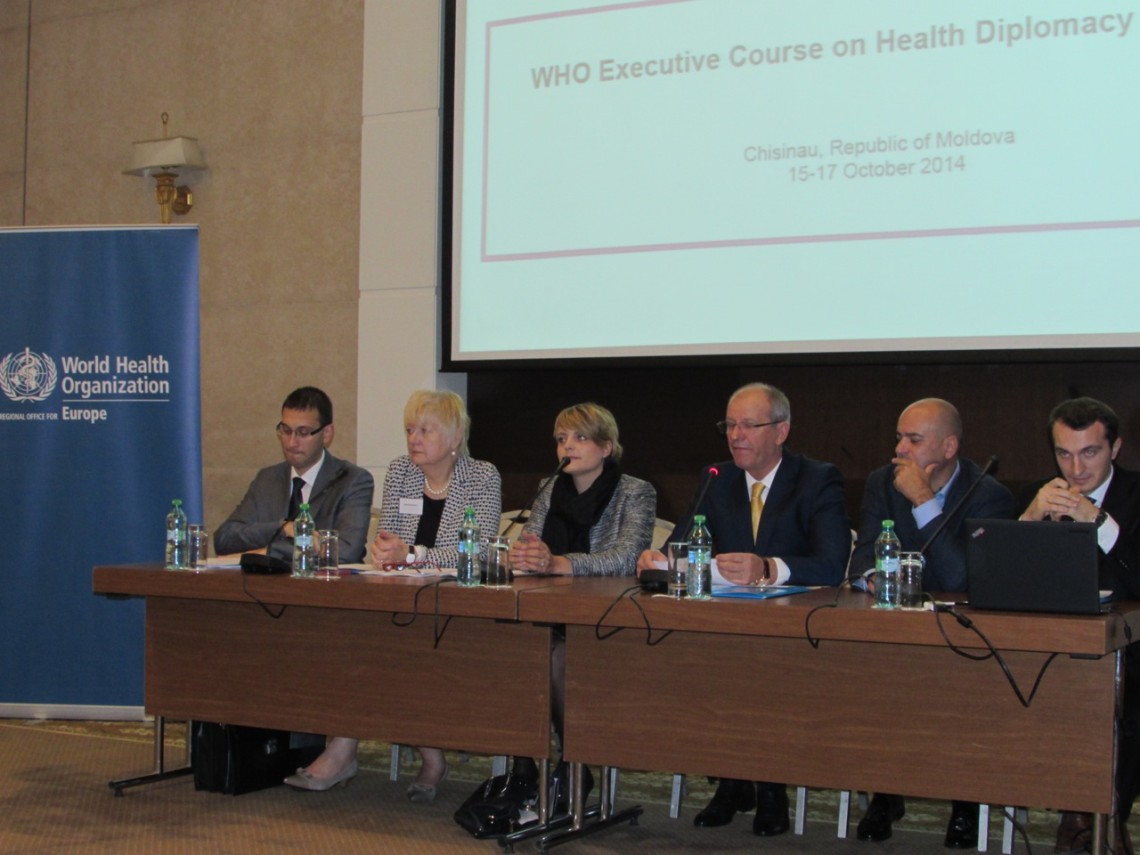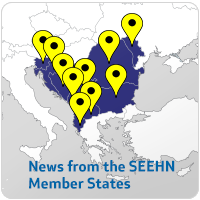
Having become a strong partner in health collaboration at European level and having obtained a growing influence on the European health policy agendas in the past 10 years, the South-Eastern Europe Health Network together with the World Health Organization (WHO) Regional Office for Europe and the Global Health Programme at the Graduate Institute of International and Development Studies in Geneva, Switzerland organized an executive course on health diplomacy in action on October 15-17, 2014 in Chisinau, Republic of Moldova.
Global health diplomacy (GHD) is considered important since it brings together the disciplines of public health, international affairs, management, law and economics and focuses on negotiations that shape and manage the global policy environment for health.
Hence, the course on health diplomacy in action aimed at capturing and further developing the capacities and skills required to achieve health improvement in the South Eastern European Region at different levels.
Comprised of lectures, roundtables and group activities, this three-day long training course provided insight into the concept and principles of global health diplomacy, the selected priority areas of current GHD negotiations, the possible SEEHN approaches applicable to the current situation in the Region and the new instruments, methods and systems of diplomacy.
It gathered over 40 high-level representatives from the SEEHN member countries and a variety of lecturers and experts who discussed the diplomatic and security challenges in the Region and the importance of policy coherence for health diplomacy. By fostering interaction and communication between the participants in mixed working groups, the course helped the diplomatic and health professionals understand their common interests in health as a foreign policy issue, and thus provided for a stronger regional cooperation in public health in the SEE.
Furthermore, it contributed to capacity building in achieving better global and national health performance, and provided instruments and mechanisms for multilateral negotiations for health in both health and non-health organizations towards achieving and holding positions in boards, assemblies and reconciling global health and national interests.
This course was implemented with technical and financial support by WHO/EURO as part of the project “Developing and sustaining the institutional capacities for regional cooperation in public health in SEEHN”, and kindly donated by the Swiss Agency for Development and Cooperation (SDC).
The course policy briefing for SEEHN, titled Building Regional Capacity in Global Health: The Role of the South-Eastern Europe Health Network, is available at the following link.





